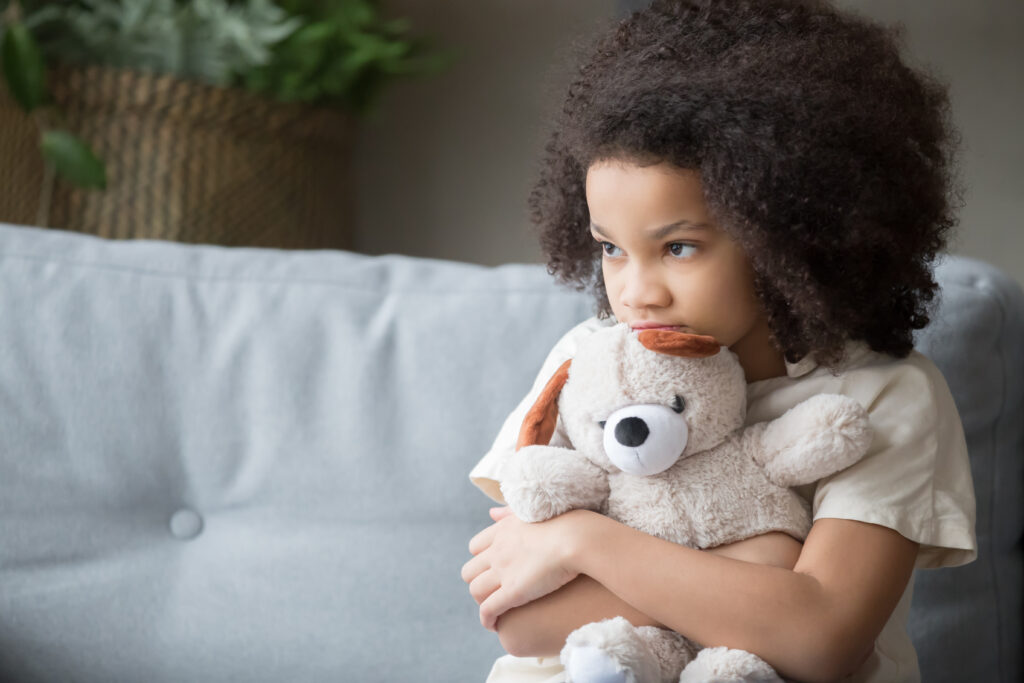Approximately 4.4 million children aged 3-17 years have been diagnosed with anxiety making it one of the most common mental health issues in our country. While anxiety is typically seen as the body’s normal response to something that is dangerous, it can become an issue for children and adults when it shows up at unexpected times. Anxiety can affect children in many different ways including lack of appetite, stomachaches, interrupted sleep and headaches. Here are some tips to help support your anxious child:
Don’t try to eliminate anxiety; do try to help a child manage it.
The best way to help kids overcome anxiety is to help them learn to tolerate it as well as they can by using coping strategies. Kids that Cope offers Virtual 1:1 Coaching sessions that will teach your child or teen effective strategies to manage their anxiety.
Don’t avoid things just because they make a child anxious.
Helping children avoid the things they are afraid of will make them feel better in the short term, but it reinforces the anxiety over the long run.
Express positive—but realistic—expectations.
Don’t promise a child that what they fear won’t happen such as you know they won’t fail the test. Do express confidence that they’ll be able to manage whatever happens.
Respect his/her feelings, but don’t empower them.
Validating feelings doesn’t mean agreeing with them. If a child is terrified about going to the doctor, do listen and be empathetic, but encourage them to face their fears.
Don’t ask leading questions or reinforce fears
Encourage your child to talk about her feelings, but try not to ask leading questions like “Are you anxious about the big test?” Instead, ask open-ended questions such as, “How are you feeling about the science test?” Also, avoid suggesting to your child, with your tone of voice or body language: that “Maybe this is something that you should be afraid of.”
Try to keep the anticipatory period short.
When we’re afraid of something, the hardest time is before we do it. If a child is nervous about going to a doctor’s appointment, don’t discuss it until you need to.
Think things through with the child.
Sometimes it helps to talk through what would happen if a fear came true and ask how would they handle it. For some kids, having a plan can reduce the uncertainty in a healthy, effective way.
Try to model healthy ways of handling anxiety.
Don’t pretend that you don’t experience stress and anxiety, but do let kids hear or see you managing it calmly, tolerating it and feeling good about getting through it.
When should I seek help for my child’s anxiety?
If anxiety is having a significant impact on your child’s everyday functioning and preventing them from participating in activities that their peers can comfortably do, this is a sign that you should seek help. It is important that an assessment takes place by a professional who knows about anxiety in children and young people. Physical examinations are also recommended to ensure that there is no underlying illness causing the symptoms.
Contact info@kidsthatcope.org for more information or to set up a free consultation to discuss how our services can help your child or teen mange their anxiety.

